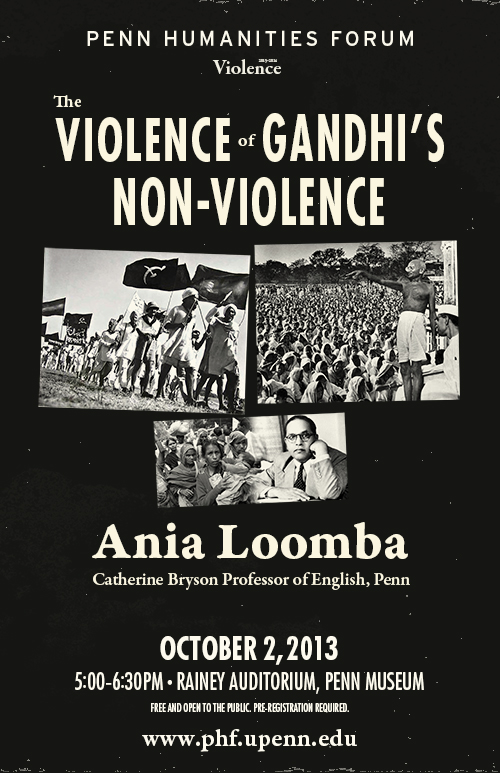The father of the Indian independence movement and legendary advocate for non-violence, Mahatma Gandhi has inspired many peaceful struggles for civil rights and freedom. Yet his legacies are complex and interwoven with ongoing patterns of conflict and abuse. Penn literary and postcolonial scholar Ania Loomba takes the occasion of this 144th anniversary of Gandhi's birth — the UN's official International Day of Non-Violence — to consider how Gandhi's legacies might help us conceptualize both violence and non-violence today.
Ania Loomba holds joint appointments in English, Comparative Literature, South Asian Studies, and Women's Studies at Penn, where she concentrates in early modern literature and culture, the history of colonialism and race, and post-colonial societies and literatures, with a special focus on India.
Her publications include Gender, Race, Renaissance Drama, Colonialism/Postcolonialism, and Shakespeare, Race and Colonialism. Her latest publications are South Asian Feminisms, a collection of essays co-edited with Ritty A. Lukose, and a critical edition of Shakespeare's Antony and Cleopatra. She is currently working on the lives of left-wing Indian women of the 1940s and 1950s, and co-editing (with Melissa Sanchez) Rethinking Feminism: Gender, Race and Sexuality in the Early Modern World (Ashgate, forthcoming).
Loomba taught for many years at the University of Delhi and Jawaharlal Nehru University, both in New Delhi, India, where she was also active in the women's movement in India. She has also taught at the University of Tulsa and the University of Illinois at Urbana-Champaign, and held a visiting appointment at the University of Natal, Durban, South Africa.



